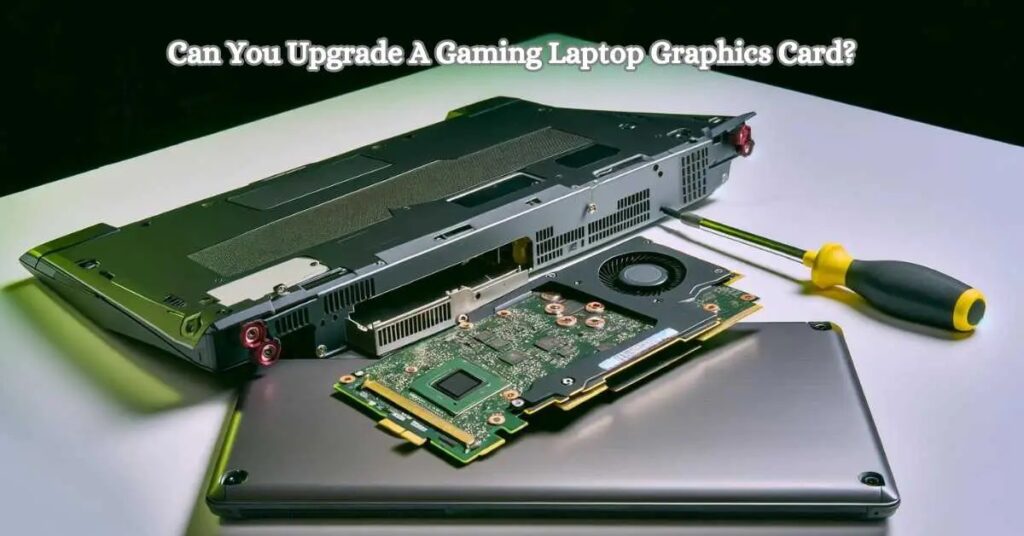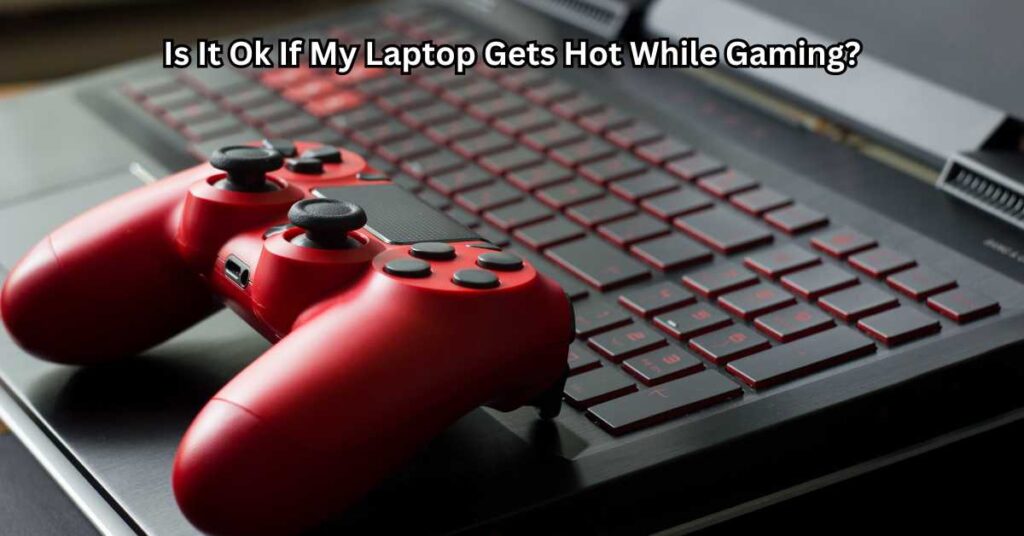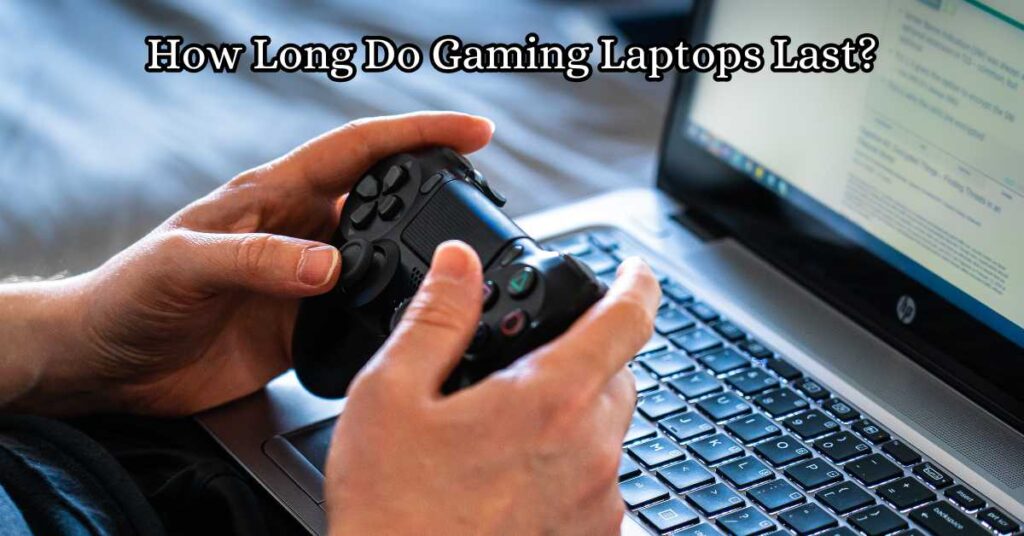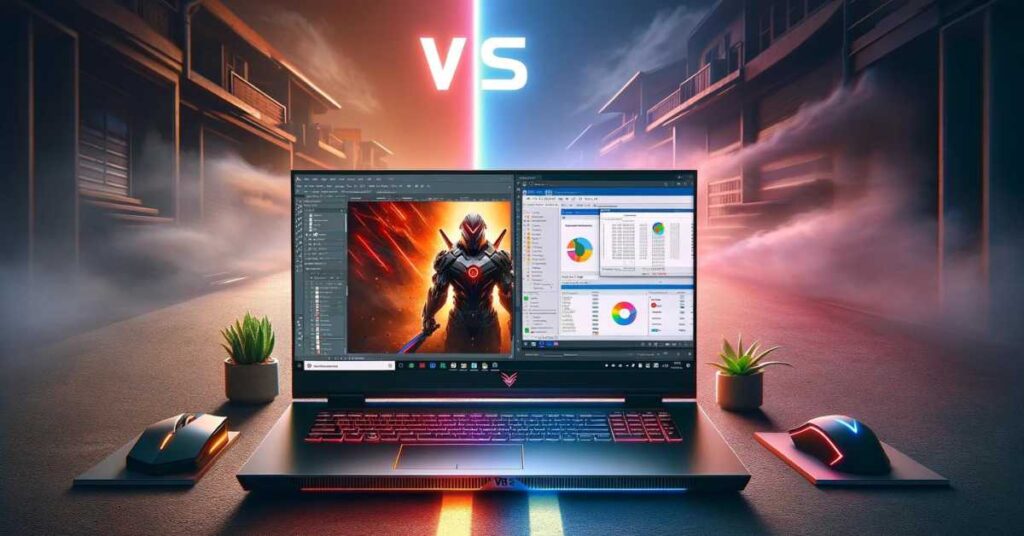Choosing the right gaming laptop is a crucial decision for any gamer, whether you’re a casual player or a dedicated eSports enthusiast. The best gaming laptop can significantly enhance your gaming experience, providing the performance, speed, and graphics quality needed to enjoy the latest AAA titles. With the myriad of options available on the market, it can be overwhelming to determine which gaming laptop suits your needs best. This guide aims to simplify that process by highlighting key factors to consider, such as processor performance, graphics capabilities, RAM, storage, display quality, and cooling systems. how to choose the best gaming laptop.
We will also explore other important aspects like budget considerations, brand reputation, and customer support. Whether you’re looking for the best budget gaming laptop or a high-performance gaming machine, this comprehensive guide will help you make an informed decision. Understanding these elements is essential for gamers who want to invest in a laptop that not only meets their current gaming needs but also stands the test of time. By the end of this article, you’ll have a clear understanding of what to look for in a gaming laptop and be well-equipped to choose the best option for your gaming setup.
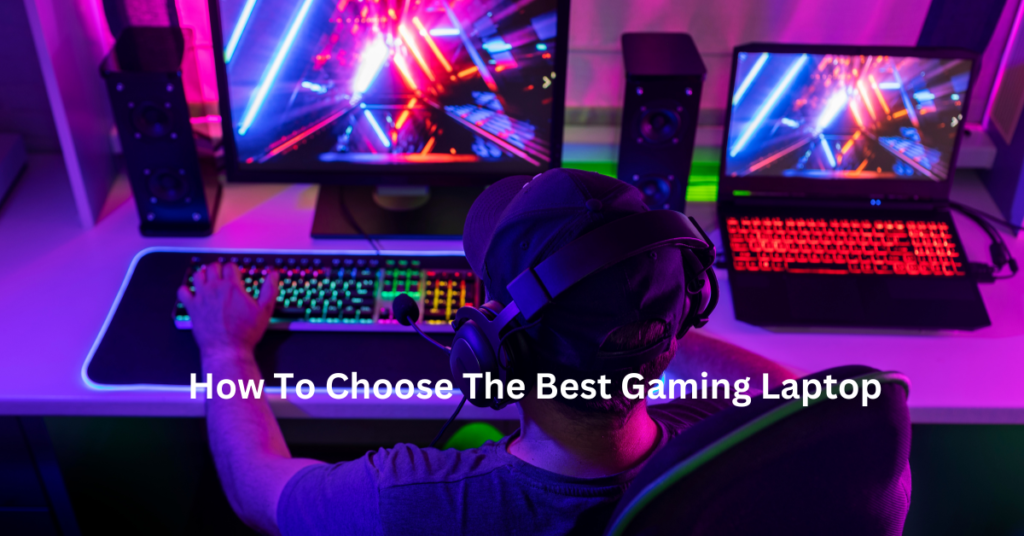
Understanding Your Gaming Needs
When choosing the best gaming laptop, the first step is to understand your gaming needs. The type of games you play significantly influences the specifications you should prioritize. Casual gamers, who enjoy less demanding games like indie titles or older classics, may not require the top-of-the-line hardware. However, if you’re into AAA games—those big-budget, high-profile releases—you’ll need a gaming laptop with a powerful CPU and a robust GPU to handle the intense graphics and processing demands. eSports enthusiasts, on the other hand, prioritize speed and responsiveness, meaning a high refresh rate and low response time display are crucial.
Identifying your gaming requirements and preferences is essential in narrowing down your options. Consider the games you play most frequently and think about their system requirements. This not only ensures you get a gaming laptop that meets your current needs but also helps in future-proofing your investment. Planning for upcoming game releases and technology advancements means opting for slightly higher specifications than what you need today, allowing your laptop to stay relevant and powerful for a longer period. By understanding your gaming needs, you can make an informed decision, ensuring your gaming laptop delivers the best performance and value for your money.
Key Specifications to Consider
When choosing the best gaming laptop, understanding the key specifications is crucial. These elements define the performance and user experience of the laptop, ensuring it meets your gaming needs. Here’s a detailed look at the essential components and features to consider.
Processor (CPU)
The processor, or CPU, is the brain of your gaming laptop, playing a critical role in overall performance. A powerful CPU ensures smooth gameplay, quick load times, and the ability to handle complex tasks. For gaming laptops, Intel and AMD are the leading CPU manufacturers. Intel’s Core i7 and i9 series, particularly the latest generations, offer exceptional performance for gaming and multitasking. AMD’s Ryzen 7 and 9 series provide competitive performance, often at a more affordable price point. When selecting a CPU, consider the clock speed and the number of cores. Higher clock speeds and more cores generally translate to better performance, especially for games that require significant computational power.
Graphics Card (GPU)
The graphics card, or GPU, is arguably the most critical component for gaming laptops. It determines how well your laptop can render graphics, affecting everything from frame rates to visual quality. There are two types of GPUs: integrated and dedicated. Integrated GPUs are built into the CPU and share memory with it, which is less ideal for gaming. Dedicated GPUs have their own memory and provide significantly better performance. NVIDIA and AMD are the primary GPU manufacturers. NVIDIA’s GeForce GTX and RTX series are popular choices, with the RTX 30 series offering real-time ray tracing and AI-enhanced graphics. AMD’s Radeon RX series also provides robust performance. For casual gamers, a mid-range GPU like the NVIDIA GTX 1660 Ti or AMD RX 5600M might suffice.
RAM
Random Access Memory (RAM) is another crucial factor in gaming performance. It affects how smoothly your laptop can run games and handle multiple tasks simultaneously. For gaming, a minimum of 8GB of RAM is recommended, but 16GB is ideal for most users. This ensures that your laptop can handle modern games and future updates without lag. More RAM can also help with multitasking, allowing you to stream, browse, and game simultaneously without performance drops.
Storage
The choice between Solid State Drives (SSD) and Hard Disk Drives (HDD) significantly impacts your gaming experience. SSDs are much faster than HDDs, resulting in quicker boot times, faster game loading, and overall better system responsiveness. Although SSDs are more expensive per gigabyte than HDDs, the performance boost is worth the investment. Ideally, a combination of both (an SSD for your operating system and frequently played games, and an HDD for additional storage) provides the best of both worlds. A minimum of 512GB SSD is recommended for gaming laptops, as games can be quite large. However, if budget allows, opting for a 1TB SSD or a 512GB SSD paired with a larger HDD can ensure you have ample space for all your games and other data.
Display
The display is another critical aspect of a gaming laptop. The screen size, resolution, refresh rate, and response time all contribute to your gaming experience. Most gaming laptops come with a 15.6-inch or 17.3-inch screen. A larger screen can enhance your gaming experience, but it also makes the laptop less portable. Resolution is also crucial; a 1080p display is the standard, offering a good balance between performance and visual quality. However, 1440p and 4K displays provide sharper images and more detail, though they require more powerful GPUs to run smoothly. The refresh rate (measured in Hz) indicates how many times the screen refreshes per second. A higher refresh rate, such as 120Hz or 144Hz, provides smoother motion and can give you a competitive edge in fast-paced games. The response time, measured in milliseconds (ms), indicates how quickly a pixel can change from one color to another. Lower response times reduce motion blur and ghosting, enhancing the visual clarity during fast-moving scenes.
Battery Life
Battery life is often a trade-off in gaming laptops, as high performance typically drains the battery quickly. While gaming, you can expect significantly lower battery life compared to general use, often around 2-3 hours. For non-gaming tasks, aim for a laptop that offers at least 6-8 hours of battery life. Power efficiency is essential, especially if you plan to use your laptop for work or school as well. Some laptops offer advanced power management settings and hybrid modes that can switch between integrated and dedicated GPUs to conserve battery when high performance is not needed.
Cooling System
An effective cooling system is vital for maintaining performance and prolonging the lifespan of your gaming laptop. Gaming generates significant heat, and without proper cooling, your laptop can throttle performance to prevent overheating. Look for laptops with advanced cooling solutions, such as multiple fans, heat pipes, and vapor chambers. Some high-end gaming laptops also feature liquid cooling systems. Ensuring your laptop has good airflow and cooling mechanisms will help keep temperatures down and maintain consistent performance during long gaming sessions.
Keyboard and Build Quality
A comfortable and durable keyboard is essential for gaming. Look for keyboards with good key travel, tactile feedback, and customizable RGB lighting. Mechanical keyboards, although less common in laptops, provide excellent tactile feedback and durability. Build quality is also crucial; a sturdy chassis made from high-quality materials can withstand the rigors of gaming and transportation. Consider the laptop’s portability if you plan to carry it around frequently. A well-built laptop will not only feel better to use but will also last longer.
By understanding and prioritizing these key specifications, you can make an informed decision and find the best gaming laptop that meets your needs. Whether you’re looking for an affordable gaming laptop or a high-performance machine, focusing on the processor, GPU, RAM, storage, display, battery life, cooling system, and keyboard will help ensure you get the best value for your investment.
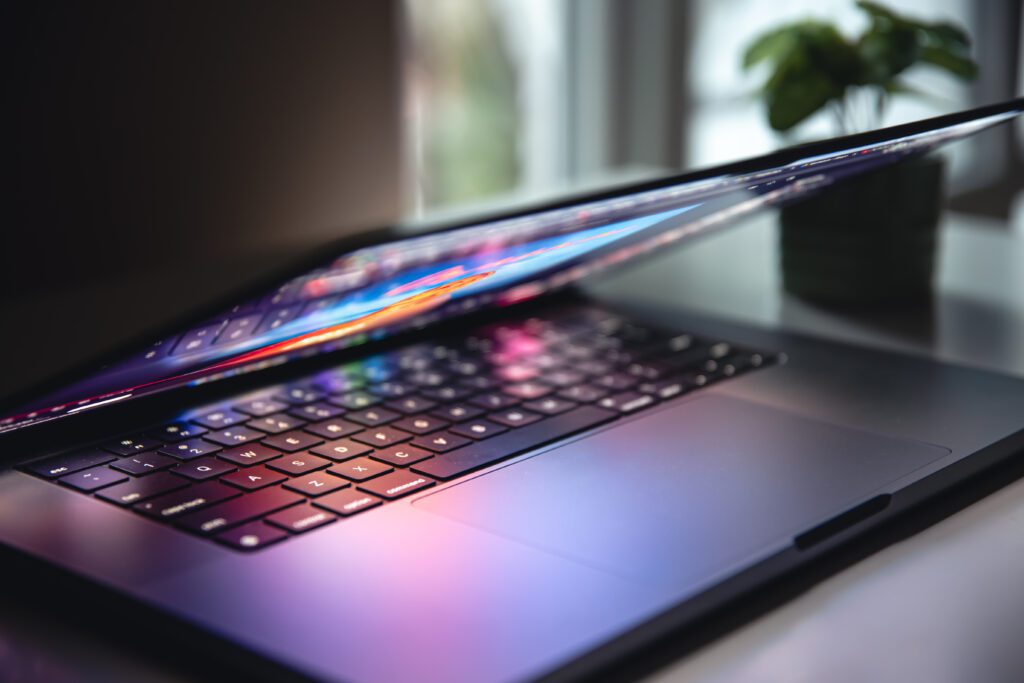
Additional Features to Look For in a Gaming Laptop
When selecting the best gaming laptop, it’s essential to consider additional features that can significantly enhance your gaming experience. These features go beyond the core specifications and can impact the overall usability, performance, and enjoyment of your laptop. Here are some key aspects to look for:
Upgradability
Upgradability is a crucial factor to consider, especially if you plan to keep your gaming laptop for several years. The ability to upgrade components like RAM and storage can extend the lifespan of your laptop and improve its performance over time. Many gaming laptops allow for easy access to the RAM and storage slots, enabling you to upgrade these components as needed. For instance, you might start with 16GB of RAM and a 512GB SSD and later upgrade to 32GB of RAM and a 1TB SSD as your gaming needs evolve. This flexibility ensures that your laptop remains capable of handling the latest games and software without requiring a complete replacement.
Connectivity Options
A gaming laptop’s connectivity options are vital for both gaming and everyday use. Ensure that the laptop includes a variety of ports to accommodate different peripherals and accessories. Key ports to look for include USB (both Type-A and Type-C), HDMI for connecting to external monitors, and an Ethernet port for a stable wired internet connection. Additionally, having an SD card reader can be beneficial for transferring data quickly.
Wireless connectivity is equally important. Look for laptops that support the latest Wi-Fi 6 standard, which offers faster speeds and more reliable connections, especially in environments with multiple devices. Bluetooth support is also essential for connecting wireless peripherals like headphones, mice, and game controllers. These connectivity options ensure that your gaming laptop can easily integrate with your existing setup and adapt to various gaming and productivity scenarios.
Audio Quality
While gaming visuals are often prioritized, audio quality plays a significant role in creating an immersive gaming experience. High-quality built-in speakers can enhance the gaming experience by providing clear, rich sound without the need for external speakers or headphones. However, many gaming laptops come with average built-in audio, so it’s important to check reviews and specifications to ensure satisfactory sound quality.
For those who prefer a more immersive audio experience, consider laptops with high-quality audio outputs for connecting external speakers or high-fidelity headphones. Some gaming laptops come equipped with advanced audio technologies like Dolby Atmos, which can provide a more cinematic sound experience. Good audio quality can make a significant difference in games where sound cues, like footsteps or environmental noises, are crucial.
Software and Customization
The software ecosystem and customization options provided by a gaming laptop can also enhance your experience. Pre-installed software can range from useful utilities to bloatware that consumes resources without adding value. It’s important to identify what software comes pre-installed and whether it can be easily removed if not needed.
Customization options, especially for performance tuning and lighting, are highly valued by many gamers. Look for laptops that offer comprehensive control over hardware settings through software interfaces. This can include adjusting fan speeds, overclocking the CPU and GPU, and customizing RGB lighting. Such customization allows you to tailor the laptop’s performance and appearance to your preferences, optimizing it for different gaming scenarios and personal aesthetics.

Budget Considerations
Setting a realistic budget for a gaming laptop is crucial in ensuring you get the best performance without overspending. When determining how much to invest, consider your gaming needs and the types of games you play. For instance, casual gamers might find affordable gaming laptops sufficient, while enthusiasts who play the latest AAA titles will need more powerful, and consequently, more expensive models.
The cost versus performance dilemma is central to choosing the best gaming laptop. It’s easy to get swayed by high-end models with top-of-the-line specifications, but it’s essential to find a balance that suits both your gaming requirements and your wallet. For most gamers, mid-range gaming laptops offer a sweet spot. They provide robust performance for most games without the exorbitant price tags of flagship models. These laptops often feature capable GPUs, fast processors, and enough RAM to handle modern games smoothly, making them ideal for budget-conscious gamers seeking value.
High-performance gaming laptops are an excellent choice for those who demand the best and can afford to spend more. These laptops come equipped with the latest GPUs, high refresh rate displays, ample storage, and advanced cooling systems, ensuring an exceptional gaming experience. However, they come at a premium price, and it’s important to assess whether the additional cost translates into a noticeable improvement in your gaming sessions.
On the other hand, entry-level gaming laptops are perfect for those new to gaming or on a tight budget. While they might not run the latest games at the highest settings, they still provide a solid gaming experience for less demanding titles. Look for models with dedicated GPUs and at least 8GB of RAM to ensure satisfactory performance.

Conclusion
Choosing the best gaming laptop is a significant decision that requires careful consideration of various key factors. We’ve covered essential aspects such as understanding your gaming needs, evaluating crucial specifications like the CPU, GPU, RAM, and storage, and recognizing the importance of display quality, battery life, and cooling systems. Additionally, we highlighted the value of a comfortable keyboard, solid build quality, and the significance of brand reputation and customer support. Each of these elements plays a vital role in ensuring that your gaming laptop provides an exceptional gaming experience and stands the test of time.
When looking for the best gaming laptop, it’s important to balance cost and performance. Setting a realistic budget can help you narrow down your options and find a laptop that meets your gaming requirements without breaking the bank. Remember that the most expensive laptop isn’t always the best one for your needs. By focusing on what matters most to your gaming style, you can make a more informed choice. Additionally, reading real-world performance reviews and benchmarks can offer invaluable insights into how different laptops perform under various gaming conditions. This step is crucial in avoiding potential disappointments and ensuring you get the best value for your money.
In conclusion, taking the time to do thorough research and carefully weighing your options will lead to a more satisfying purchase. Whether you’re a casual gamer or a competitive eSports enthusiast, the right gaming laptop can significantly enhance your gaming experience. By considering all the factors discussed in this guide and staying informed about the latest advancements in gaming technology, you can confidently choose a gaming laptop that meets your needs and provides countless hours of enjoyment. Happy gaming, and may your new gaming laptop bring you many victories and memorable moments!
Frequently Asked Questions (FAQ): how to choose the best gaming laptop
1. What is the most important component to consider in a gaming laptop?
The most crucial component in a gaming laptop is typically the GPU (Graphics Processing Unit). A powerful GPU ensures that your laptop can handle the latest games with high graphics settings, providing smooth and immersive gameplay. However, other components like the CPU, RAM, and storage also play significant roles in overall performance.
2. How much RAM do I need for a gaming laptop?
For most modern games, 16GB of RAM is recommended to ensure smooth performance and multitasking capabilities. While 8GB might be sufficient for older or less demanding games, opting for 16GB future-proofs your laptop and enhances your gaming experience.
3. Is it better to have an SSD or an HDD in a gaming laptop?
An SSD (Solid State Drive) is generally better for a gaming laptop because it offers faster load times, quicker boot-ups, and overall improved performance compared to an HDD (Hard Disk Drive). Many gaming laptops come with a combination of both, using an SSD for the operating system and key applications, and an HDD for larger game files.
4. Can I upgrade my gaming laptop in the future?
Upgradability depends on the specific model of the gaming laptop. Some laptops allow for upgrades to RAM and storage, but upgrading the CPU or GPU is usually not possible. Before purchasing, check the manufacturer’s specifications to understand the upgradability options available for the laptop you are considering.
5. What should I look for in a gaming laptop’s display?
When choosing a gaming laptop’s display, consider factors such as screen size, resolution, refresh rate, and response time. A higher resolution (such as 1080p or 1440p) provides clearer and more detailed visuals, while a higher refresh rate (120Hz or 144Hz) ensures smoother gameplay, especially in fast-paced games. A low response time (measured in milliseconds) reduces motion blur and enhances visual clarity.

